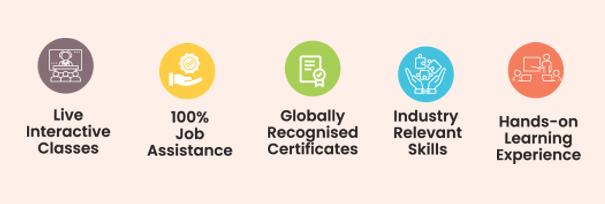A majority of the IT initiatives revolve around technologies but DevOps is one which is built around people. Yes, the use of technologies and tools is done extensively, but it is the people and their knowledge that truly makes all the difference. Thus, DevOps can be said to be a methodology.
One that evolves from the amalgamation of best practices and experience of managing the testing, support and development processes in an SDLC (software development life cycle). With the aid of these best practices, organizations manage development, integrated testing, assistance, and tools deployment with enhanced speed and productivity.
Traditionally, the departments of support, development and testing worked in silos, which led to increased process gaps as well as conflict in duties. Since each of these functions were managed by different people, conflicts were bound to arise and led to miscommunications and misunderstandings. All of this negatively affected the productivity, which led to customer dissatisfaction. With the evolution of DevOps as an approach, a lot has changed for the better. A DevOps engineer job profile is thus, one of the most sought- after in today’s tech world.
To be able to become a DevOps expert, you need to get enrolled with a respected institute for your DevOps training and certification. Every aspect of DevOps plays a big role in keeping the customer experience prime. But what are the key DevOps responsibilities? Well, the answer is not as simple as the question because a DevOps engineer does a lot of things and is responsible for carrying out a lot of tasks.
With this blog, we will give you a brief on not just the key DevOps responsibilities, but also where you can enrol to get started in your journey to become a treasured professional of the tech world. Without further ado, let us begin.
Who is a DevOps Engineer?
A DevOps engineer is the one who is responsible for the flawless functioning of an organization’s IT infrastructure. Their job involves working with the developers for the deployment and the management of code changes, as well as with the operations staff to keep ensured that all the systems are up and functioning smoothly.
In order to succeed as a DevOps engineer, you must have exceptional understanding of the processes involved in both development and operations, along with a strong technical background. All these traits can be excelled with the aid of a DevOps training and certification course.
We all know that businesses are becoming more and more dependent on technology with each passing day. As a consequence, the role of a DevOps engineer is gaining more traction. A DevOps engineer is someone with the prowess of streamlining their operations. Not only this, they help in making optimum utilization of their IT infrastructure. If your technical background is strong and your interest lies in working along the operations and development staff, then a DevOps training course is what you should go with.
What are the Key DevOps Responsibilities?
Since a DevOps engineer looks into the working of both the development and the operations teams, their responsibilities are a combination of these two. In addition to this, they are also to fulfil certain technical duties associated with these departments. Some of the key skills to possess are coordination and communication skills. Both of which help in successfully integrating multiple functions in a streamlined manner.
Here is a list of the key DevOps responsibilities. But let us tell you that this list is not a know- all list. There are many other roles and responsibilities which you might need to take up as a DevOps engineer. But since it is not possible to get on with the entire list here itself, we will take you through some of the top ones, which according to us are amongst the core responsibilities.
- Understanding major customer requirements and the project key performance indicators (KPIs)
- Planning team actions, involvement, and structure in all project management activities
- Setting up the required tools and infrastructure
- Possessing the needed technical skills for validating, verifying and reviewing the software code developed in projects
- Monitoring the processes during the SDLC (software development life cycle) and keeping it updated. Or creating new processes to minimize wastage
- Consistently performing risk management and vulnerability assessment for identifying & deploying cybersecurity measures
- Communicating and coordinating amongst the team and with customers
- Striving for continuously improving and building consistent development, deployment pipeline and integration
- Measuring and monitoring customer experiences and the key performance indicators
- Implementing varied testing, IT infrastructure, automation tools and development
- Managing external interfaces and stakeholders
- Defining and setting update, test, support, release and development processes for DevOps operation
- Troubleshooting techniques along with fixing the code bugs
- Encouraging the building of automated processes wherever and whenever possible
- Root cause analysis and incident management
- Selecting as well as deploying necessary CI/ CD tools
- Mentoring & guiding all team members of development and operations
- Keeping a track of periodic reporting on the distinctive and collective progress
But as we mentioned above, this list is not the end of the things a DevOps engineer can be responsible for doing in their company. A DevOps engineer’s role is such that it requires the individual to change as per the requirements of the organization and thus, a lot of things can be different.
Now that we have a good idea about the key DevOps responsibilities, let us take a tour of the domains of expertise which any company that wishes to succeed must have in their working atmosphere. Here are some of the key DevOps roles that you should know about.
Key DevOps Roles
Whether you are going through your final search before your DevOps training or you are just starting to figure out this sector, you need to know about the key DevOps roles. Here are a few you should know about –
- The DevOps Evangelist
The change agent behind delivering and owning the change towards a more refined DevOps culture is a DevOps Evangelist. These professionals are charged with the duty of ensuring the implementation and success of the DevOps processes as well as the team identity.
- The Automation Architect
One of the most essential additions to any DevOps team is the automation architect. Why? Because DevOps revolves around one word and that word is automation. These professionals are given the responsibility of creating processes which incorporate automation in order to reduce the manual tasks. Creating a more efficient and effective process is what they do. Along with this, they find the apt tools to integrate and use within a DevOps model.
- The Software Tester/ Developer
The Product Builder is also known as the Software Developer. These professionals are handled the task of writing the code. In a DevOps setting, a software developer performs ongoing monitoring, unit testing and deployment. While the traditional developer’s role is more about just writing code, the role of a DevOps software tester/ developer includes more responsibilities and can be said to be more expanded.
- The Code Release Manager
In a DevOps model, the Code Release Manager mostly holds the role of a Project Manager. In addition to this, the Code Release Manager should have required technical expertise and knowledge to maintain and run the process of application and product development and delivery. Knowledge related to understanding the how’s and when’s of leveraging agile methodologies is essential.
- The Experience Assurance Expert (XA)
The responsibilities of an Experience Assurance Expert move along the responsibilities of quality assurance. However, in terms of use, it is mostly related to customer experience & its simplicity. This profession is responsible for creating a flawless user experience (UX) of the final product. Basically, an Experience Assurance Expert is the customer’s advocate.
- The Security and Compliance Engineer (SCE)
The Security and Compliance Engineer is the individual tasked with the responsibility for the overall end- to- end security of the system. In DevOps, the Security and Compliance Engineer works along with development. Thus, their utility is seen more during the building phase and not so much in the post- production phase. This professional works closely with all the departments of an organization to ensure that the company is following all the safety protocols with its data.
- IT Engineers
IT engineers are extremely crucial to the process of DevOps. These professionals are thorough with the software development life cycle and workflows. Thus, they can collaborate with the development team for the reduction of the fiction that earlier arose post handling off the code for deployment.
Conclusion
Every aspirant deserves to know what they are stepping into before making the final call. If you are looking for the right beginning to your career as a DevOps engineer, you need to read this blog thoroughly.
As for your DevOps training and certification, the only institute you should look into is Grras Solutions. This is one of the finest institutes in the country and you are bound to experience unlimited growth and success in your journey as you get trained and certified from this institute. Begin your journey today with the best and you are sure to become the best too.






